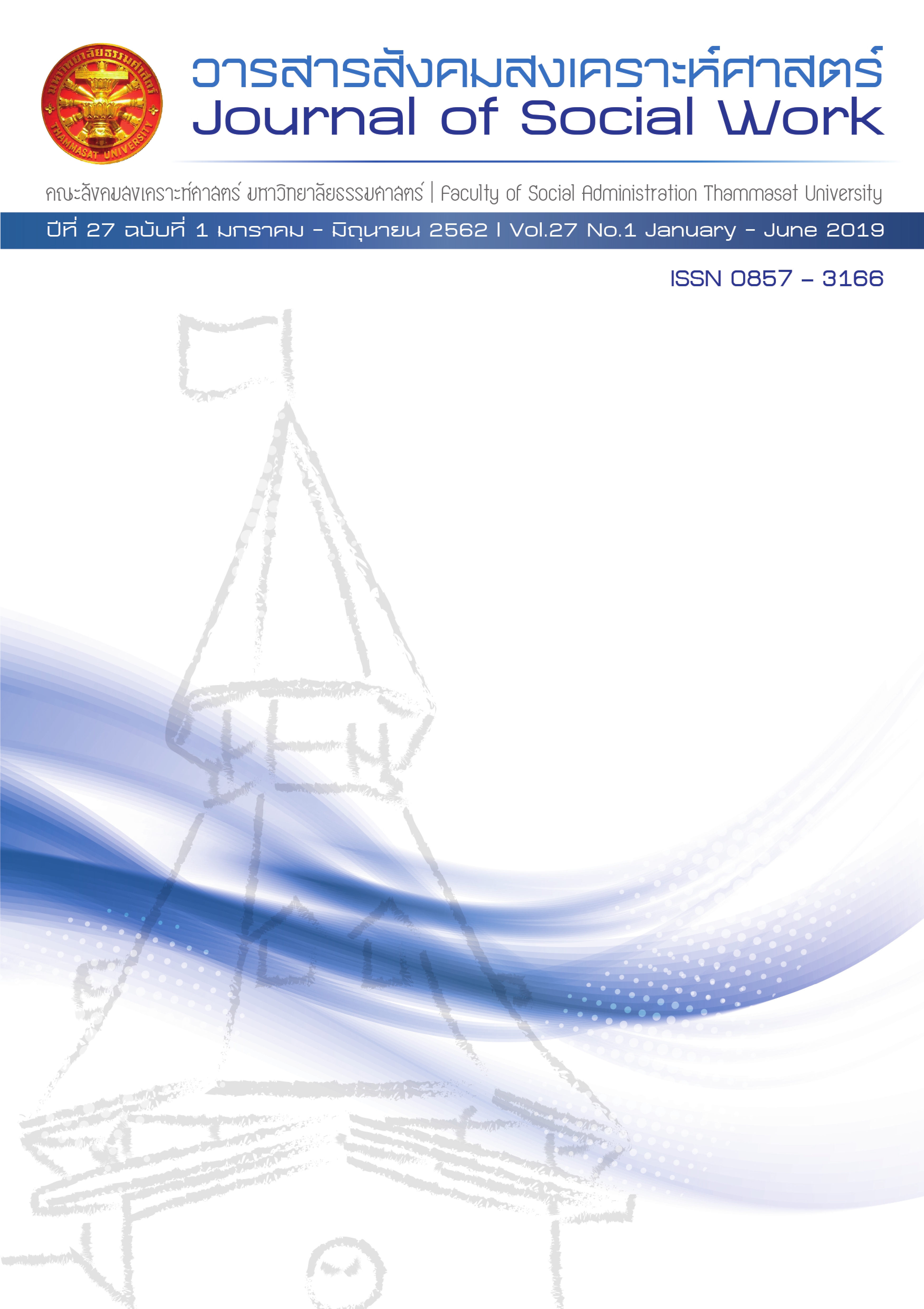Social Capital and Potential Enhancement of Community for Caring the Early Childhood in the Northern Part of Thailand
Keywords:
Social Capital, Pre-School Children, Community Potential, Northern PartAbstract
The objective of this research was to search for the social capital in community which can be used to develop the potential in the Early Child Development Center for 2-5 year-old children in the northern part of Thailand covering 6 provinces namely Sukhothai, Lumphun, Lumpang, Nan, Chiang Mai, and Chiang Rai. Data collection was conducted through interviewing people in the community who are capable of providing information about social capital in the community including community leader, representatives of Local Administrative Office, representatives of the healthcare service center, parents, and officers in the Early Child Development Center.
Finding of this study showed that the social capital in the community could be used as the basis of the potential development of the Early Child Development Center in the area in 7 forms including 1) human capital 2) group capital/network capital 3) department capital/organization capital/institute capital 4) financial capital 5) facility capital 6) natural resource capital and 7) local cultural and traditional capital which were able to be used to develop the Early Childhood Development Center’s performance, and to support the long-term community development on child development, concentration, social skills, holding the learning activities for children, transmitting the community culture through generations, natural resources conservation, and also the potential development of the officers in the Early Childhood Development Center in the community. Studying the social capital in the community was important steps in process of enhancing the community which could be conducted together with the analyzing the situation and needs of the community for developing the Early Childhood. Besides, the social capitals were able to be used as the solution of the problems and guideline for promoting child development in community.
References
Anan Kanchanapan. (1992). Fund Raising for Soceity. Bangkok: Local Development Institute.
Baron, S., Field, J. & Schuller, T. (2000). Social capital : critical perspectives. Oxford: Oxford University Press.
Bronfenbrenner, U. (1979). The Ecology of Human Development: Experiments by Nature and Design. Cambridge, Massachusetts: Harvard University Press.
Halpern, D. (2005). Social capital. Cambridge, UK: Polity.
Jeronimus, B.F.; Riese, H.; Sanderman, R.; Ormel, J. (2014). Mutual Reinforcement Between Neuroticism and Life Experiences: A Five-Wave, 16-Year Study to Test Reciprocal Causation. Journal of Personality and Social Psychology. 107 (4): 751–64.
Kail, R. V., & Cavanaugh, J. C. (2010). The Study of Human Development. Human Development: A Life-span View (5th ed.). Belmont, CA: Wadsworth Cengage Learning.
Office of the Education Council. (2007). Long-Term Policy and Strategy of Early Children Development (0-5 year-old) 2007-2017. Bangkok: Office of the Education Council.
Office of the Education Council. (2013). Roles of Parents, Teacher Assistants, and Babysister for the Pre-School Childcare. Bangkok: Office of the Education Council: Ministry of Education.
Putnam, R. D. (1996). Who kill Civic America?. Prospect, March: 66-72.
Rawiwan Laohanan, Patrarapan Dhamdee, and Worachai Wiriyarom. (2016). Corporate Social Responsibility and Communit Development. Document Reports of 8th National and International Graudate Academic Conference Held by the Project of Master of Arts, Politics Science (Special Program) Department of Political Science and Public Administration Faculty of Social Science Kasetsart University. Friday, June 24, 2016 at Faculty of Social Science, Kasetsart University. Page 81-86.
Santrock, John W. (2007). A Topical Approach to Life-Span Development. New York, NY: McGraw-Hill.
Social Investment Fund Office. (2002). Learning for Country. Bangkok: Social Investment Fund Office. Office of the National Economics and Social Development Board. (2012). Thailand Strategy for the Next 2 Decades (2013-2031) Under the Sufficiency Economy September 28, 2016. Retrieved from http://www.nesac.go.th/web/upload/modDocument/file _1286335836568_tn-31-486.pdf
The office of the National Research Council of Thailand (2012). 8th National Research Policy and Strategy (2012-2016). September 28, 2016. Retrieved from http://www1.nrct.go.th/index.php?mod=contents&req=view&id= 1402
Vander Zanden, J. W., Crandell, T. L., Crandell, C. H. (2007).Human Development. (8th ed.). New York: McGraw Hill.
Worawut Romratanapan. (2005). Social Capital. Bangkok : Learning Project for Happy Community
Worawut Romratanapan (2008). Social Capital: New Paradigm in Environmental Management. Nakhon Pathom. Physic Center.
Woodside, Arch G.; Caldwell, Marylouise; Spurr, Ray (2006). Advancing Ecological Systems Theory in Lifestyle, Leisure, and Travel Research. Journal of Travel Research. 44 (3): 259–272.
Published
How to Cite
Issue
Section
License
The manuscripts published in the Social Work Journal is the copyright of the Social Work Journal, Thammasat University
Any article or opinion appeared in the Social Work Journal will solely be under the responsibility of the author The Faculty of Social Administration, Thammasat University and the editors do not need to reach in agreement or hold any responsibility.



